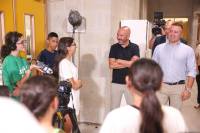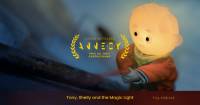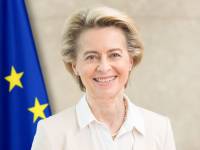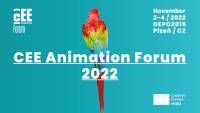Over 130 students participate in the first-ever Film Commission's summer camp
Press releases 25-08-2023Over the past weeks, 130 students, aged 9 to 11, have been given a unique experience to learn about film through a hands-on approach. Over a ten-day programme, students learnt about cinema, film production, scriptwriting, storyboarding, acting, filming and editing. The culmination of each programme was the shooting of a short film which the students got to develop from a script they cowrote.
The engaging hands-on curriculum for the programme was developed in collaboration with FACETS, a US based Film Education organisation which was also entrusted with training and mentoring of the film educators delivering the programme.
This summer camp is one of the various film education initiatives being developed by the film commission with the aim to inspire a new generation of filmmakers while increasing awareness about opportunities in the film industry.
“Education is the key to future proof Malta’s film industry. It is crucial to start integrating the art of film within our education system for all those who aspire to become Malta’s film makers. The Government together with the Malta Film Commission will continue working hard to offer more new avenues through which more people can enter and work in Malta’s film industry,” outlined Minister for Tourism Clayton Bartolo.
Malta Film Commissioner Johann Grech insisted that, “we are giving more opportunities to our children in film education to increase awareness about the art of film and the potential of the film industry. We are incentivizing work in film because we want to create more opportunities for all, where our children can reach their dreams and can have careers in our film industry.”
This summer camp was made possible through the collaborations of the Malta Film Commission with the Foundation of Educational Services (FES) and the Malta College of Arts Science and Technology (MCAST).
Animated feaure film Tony, Shelly and the Magic Light was honoured with the Contrechamp Jury Award at the closing ceremony of the 47th Annecy International Animation Film Festival. The feature film debut of director Filip Pošivač made in co-production of Czech Republic, Slovakia and Hungary was presented at the festival in international premiere at the Contrechamp competition. Moreover, a short film in development titled Period Drama directed by Michaela Mihalyi, presented at this year's Mifa Pitches, was awarded the Open Workshop Prize.
Contrechamp Jury Award for Tony, Shelly and the Magic Light
Stop-motion puppet animation feature film debut of director and illustrator Filip Pošivač Tony, Shelly and the Magic Light tells a story of the eleven-year-old Tony, who has a unique feature he was born with - he glows. He spends his days at home in his blanket bunker under the guidance of his controlling parents and dreams about having a friend. Before Christmas, a peculiar girl named Shelly moves into his house and turns his world upside down. Together, they embark on an adventurous search for the origin of the mysterious tufts of darkness which suck the sunshine out of their house. Tony, Shelly and the Magic Light is a film about what it's like to be different, about friendship and imagination, and also about light and darkness.
The film received the Contrechamp Jury Award, which is one of the two prizes awarded in the Contrechamp competition, consisting of 12 feature films this year. The Contrechamp competition in a way complements the Official Competition and it was first introduced in 2018.
Tony, Shelly and the Magic Light is a coproduction of Czech Republic, Slovakia and Hungary with Pavla Janoušková Kubečková of nutprodukce and Jakub Viktorín of nutprodukcia being the main producers. Czech Television, Gábor Osváth from Filmfabriq, Kouzelná animace and Radio and Television Slovakia are the coproducers. The world sales and festivals are handled by Danish sales company LevelK.
"We are thrilled that a film from the CEE region attracted so much attention in Annecy and resonated not only with the French audience but also with the viewers from other countries including for example Japan. The negotiations about the distribution of the film in several countries are already happening, and so we believe that the film will reach audiences not only in the Czech Republic. The local theatrical release is planned for December of this year", shared after the ceremony producer Pavla Janoušková Kubečková.
The Czech Film Fund provided the support of EUR 622 00 and it was also supported by Slovak Audiovisual Fund, Creative Europe – MEDIA, Eurimages, Zlín Region and National Film Institute Hungary. As a feature film in the making, Tony, Shelly and the Magic Light was presented at various platforms including Cinekid Junior Co-production Forum in 2018, Animarkt Stop Motion Forum 2020 and Cartoon Movie 2022.
Czech animation has been widely present in Annecy this year with six other short films screening in various sections of the festival. Similarly, in 2021 the animated feature film of Michaela Pavlátová called My Sunny Maad also received the Jury Award of the Official Competition. 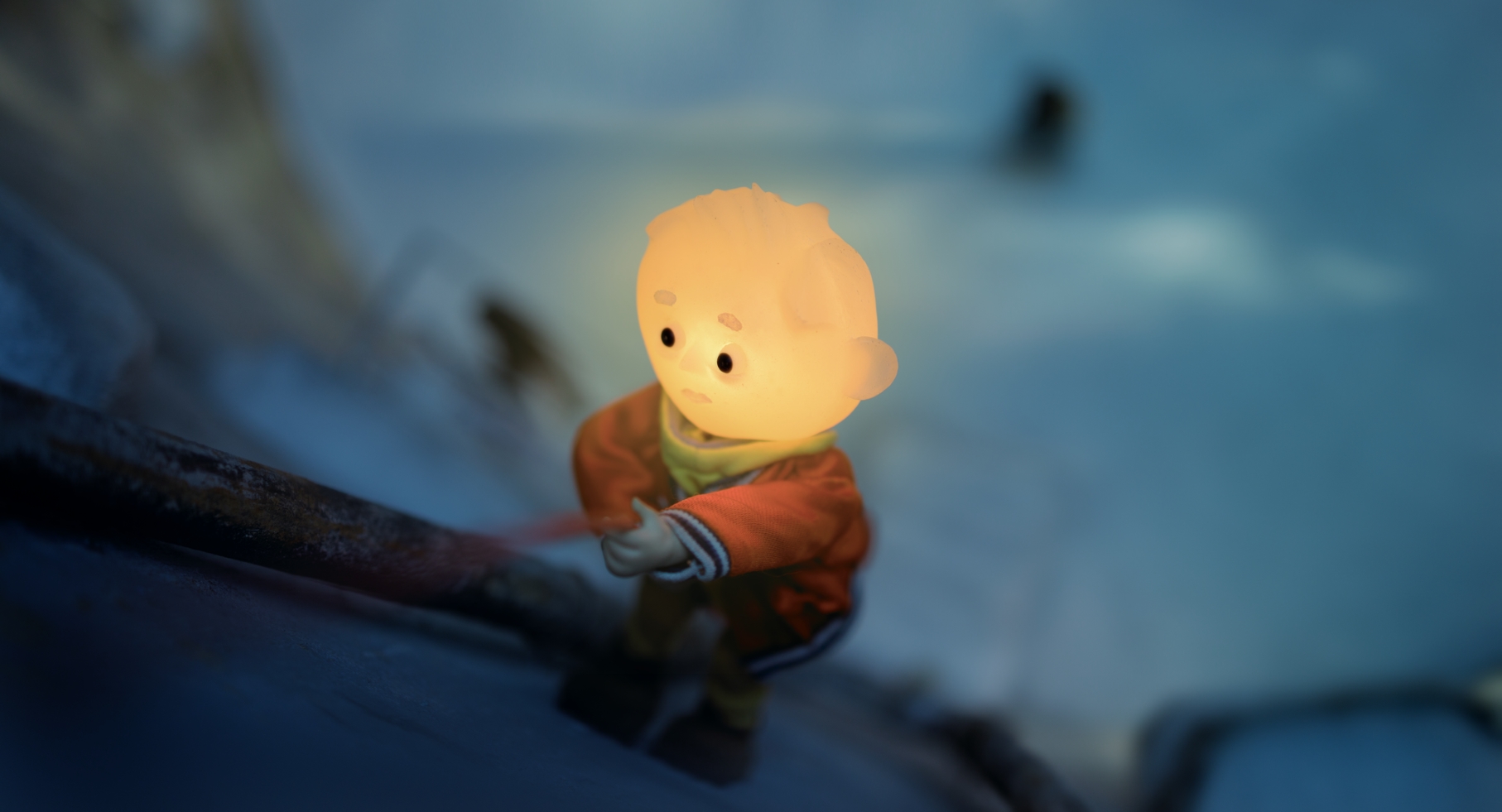
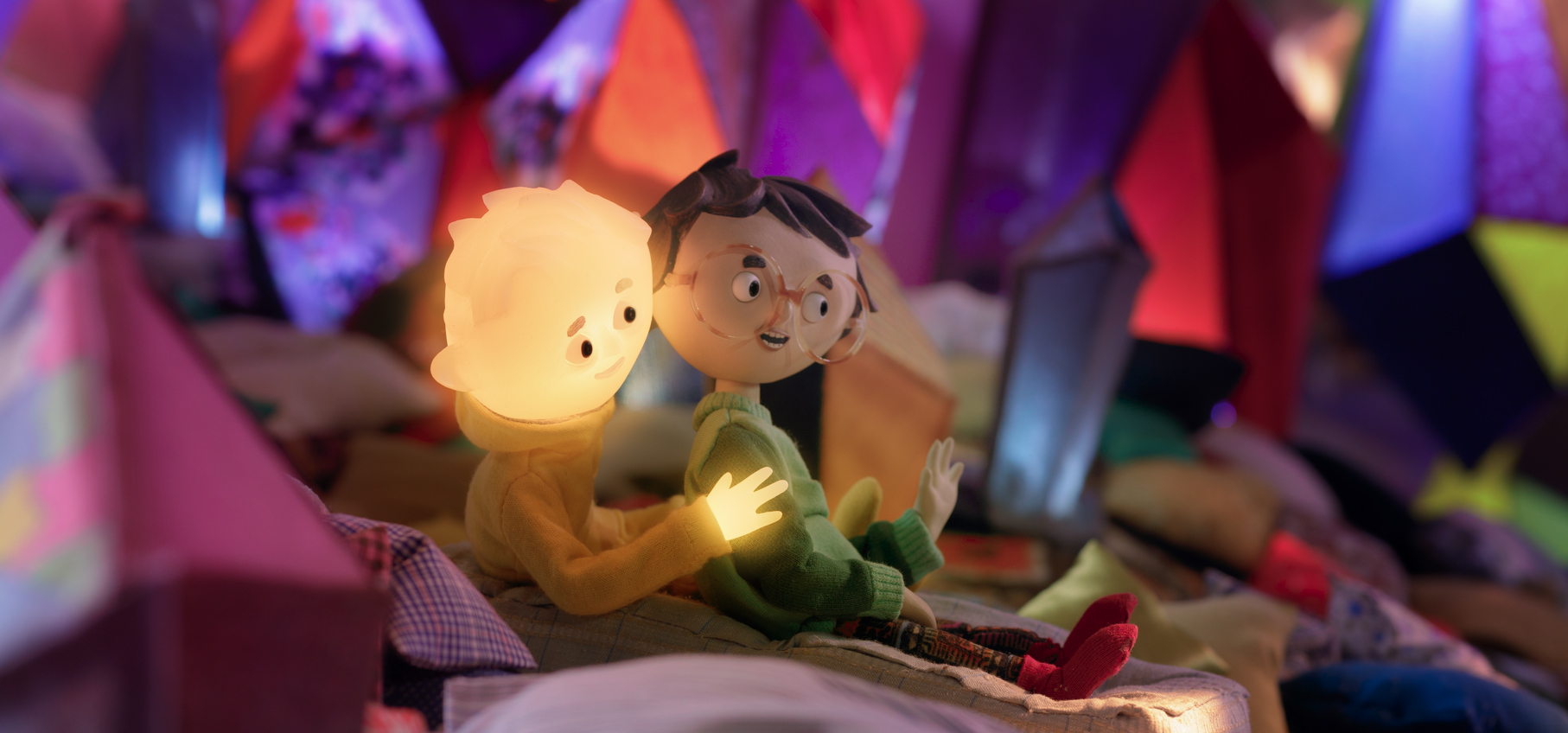
Open Workshop Prize for Period Drama
Moreover, Mifa, the Annecy’s film market, gave floor to the upcoming Czech-Slovak short film project Period Drama within the Mifa Pitches and the professional jury awarded the project with the Open Workshop Prize. The prize consists of 2-6 month residency at The Animation Workshop (Viborg, Denmark) and a 3,000 EUR grant for an animated short film project.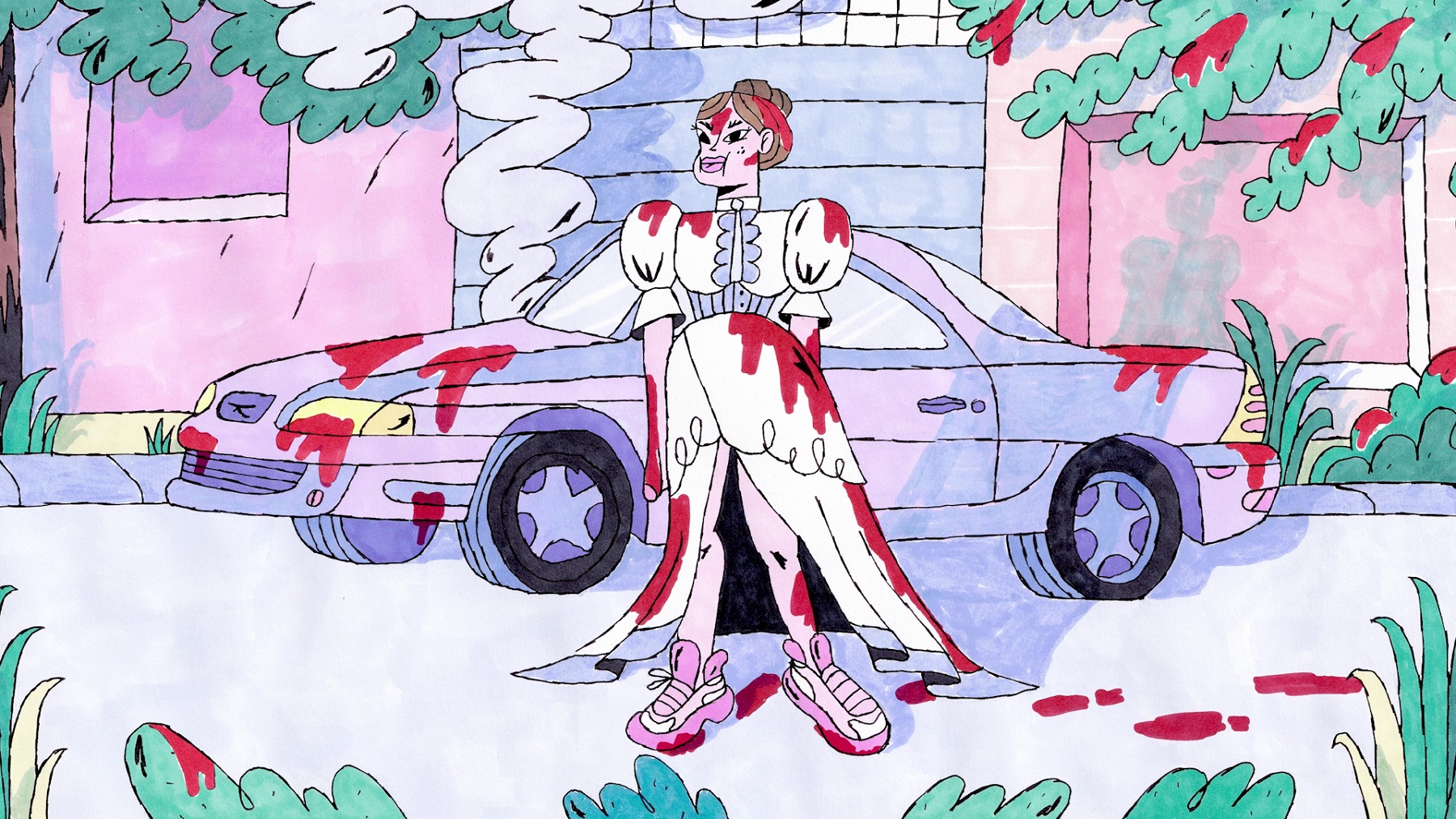 The new short film of director Michaela Mihályi and producer Jakub Rálek of BFILM.cz explores in four chapters the topic of first menstruation, with plot points referencing the biological events that occur during the phases of the menstrual cycle. Menstruation connects the vignettes like a secret thread. Through the humorous gaze of a character, the film analyses menstruation's essential and often baffling presence in life. While commenting on adolescence, gender politics, sexuality, motherhood and Orlando Bloom, the main character takes us on a surreal trip that begins with her first period and continues as she, much like an egg, matures. Michaela Mihályi, together with Dávid Štumpf, stood also behind the successful animated short Sh_t Happens (2019), screened in Venice, Tallinn or Sundance.
The new short film of director Michaela Mihályi and producer Jakub Rálek of BFILM.cz explores in four chapters the topic of first menstruation, with plot points referencing the biological events that occur during the phases of the menstrual cycle. Menstruation connects the vignettes like a secret thread. Through the humorous gaze of a character, the film analyses menstruation's essential and often baffling presence in life. While commenting on adolescence, gender politics, sexuality, motherhood and Orlando Bloom, the main character takes us on a surreal trip that begins with her first period and continues as she, much like an egg, matures. Michaela Mihályi, together with Dávid Štumpf, stood also behind the successful animated short Sh_t Happens (2019), screened in Venice, Tallinn or Sundance.
At the occasion of the Cannes International Film Festival, it was announced that ESFUF will be reinforced by the contributions of two new EFAD members, the Norwegian Film Institute and the British Film Institute's UK Global Screen Fund bringing the number of contributing countries to 15.
Norway
The Norwegian Film Institute has, with additional funding suggested by the Norwegian Ministry of Culture and Equality to be formally adopted in Parliament in June, extended support for Ukranian filmmakers through the ESFUF
Kjersti Mo, CEO, NFI said: “Telling stories through film is one of the most powerful ways there are to convey a nation`s culture and to keep the country together through common experiences. This is especially important for a country in crisis, both for the country and its inhabitants but also for the outside world to learn what is happening and inspire action. We stand with our European partners in supporting Ukranian filmmakers and are proud to support this endevour.”
The United Kingdom
The UK Global Screen Fund (UKGSF), financed by the UK Government’s Department for Culture Media and Sport (DCMS) and administered by the BFI, has extended support to Ukrainian Filmmakers through the ESFUF.
Ben Roberts, CEO, BFI said: “The role of filmmakers in telling stories and bringing perspectives that inspire people the world over has never been more important or urgent than it is today. We stand with our partners in Europe in supporting Ukrainian filmmakers through the UK Global Screen Fund that we manage on behalf of the UK Government.”
Their precious contributions will allow more projects to be supported in the second round of selection, which will be launched this summer.
In the same occasion, the results of the first selection round of the European Solidarity Fund for Ukrainian Films were announced by the Jury President, Marianne Slot. A total of 11 projects for a global amount of 523 000 € will receive support to development and finalization. The list of the selected projects is available on the ESFUF website, here.
Background
ESFUF, launched in Berlin 2023, is an initiative proposed by the CNC to the other EFAD members during the Cannes General Assembly in May 2022. After having supported various other actions for Ukraine at national and European level, EFAD and its members wanted to unite forces to launch a dedicated support for Ukrainian filmmakers, to help them completing their films or developing new projects, while fostering co-productions. With an initial budget of one million euros, it aims at financing Ukrainian cinematographic works at development and finalization stages, supporting projects selected by a jury of five independent experts, through two calls for projects launched in 2023.
New and classic Slovak cinema at the International Film Festival Rotterdam
Press releases 19-01-2023The 52nd edition (25 January – 5 February 2023) of the International Film Festival Rotterdam, one of the world's renowned festivals, will feature a world premiere of new Slovak drama Power and three digitally restored films from the collections of the National Film Archive of the Slovak Film Institute.
Director Mátyás Prikler premiered his feature debut Fine, Thanks in Rotterdam 10 years ago, now he is back with his second feature film, Power in Rotterdam’s Harbour section. At an informal hunt, somewhere on the border of two Central European countries, a boy is accidentally killed. One of the politicians involved is the hot candidate for the important international post of Water Commissioner, who is expected to find a solution to the increasing water shortage across Europe and elsewhere in the world.
This year's programme also include three short animated classics by Jaroslava Havettová, one of the pioneers of Slovak animation. Her films, known for a unique poetic style, deal with topics of destiny, sacrifice and the role of individuals in society. The Cinema Regained section will show a music video with pop art motifs The Song (1969), a film inspired by Haban pottery and Slovak proverbs Until the Pitcher Is Broken at Last (1971) and the minimalist Contacts (1980) about power and its abuse.
The Trieste Film Festival is one of the largest festivals dedicated to Central and Eastern European cinema. The 34th festival’s edition (21 – 28 January 2023) will screen a total of seven feature-length and four short Slovak films.
Minority co-productions The Visitors (d. Veronika Lišková) and Fragile Memory (d. Igor Ivanko) will compete in the Documentary Competition, while Revelation of John (d. Andrej Kolenčík) and Money and Happiness (d. Ana Nedeljković, Nikola Majdak Jr.) will vie for the award in the Short Films section. The Out of Competition section will present Victim (d. Michal Blaško), which had its world premiere last year at the Venice International Film Festival. A special screening awaits the historical feature film Il Boemo (d. Petr Václav). In the section dedicated to children’s audiences, the TSFF of the Little Ones will present the 3D animated film Journey to Yourland (d. Peter Budinský).
In addition to the presentation of the best films made during the year in Central and Eastern Europe, each year there is a retrospective programme, this year dedicated to the 30th anniversary of the independence of the Czech Republic and Slovakia. The programme entitled Beyond the Boundaries: The Fringes of Czech and Slovak Cinema was curated to reflect the main trends in the development of Czechoslovak cinema from 1930s to 1960s. Karel Plicka’s ethnographic documentary The Earth Sings (1933) will present the Slovak countryside of the 1930s, while Dušan Trančík's short film Photographing the House Dwellers (1968) will bring together the most beautiful and the most tragic moments in the life of a rural family. The short film Old Shatterhand Came to See Us (1966) gives a sarcastic report on living in an enclosed reservation behind the Iron Curtain, and the documentary Pictures of the Old World (1972) presents vivid portraits of old people from the Slovak regions of Liptov and Orava. Both films were directed by Dušan Hanák.
European Green Deal of the European Commission to receive the first European Sustainability Award – Prix Film4Climate during European Film Awards
Press releases 04-12-2022President of the Commission Ursula von der Leyen to accept the Award
During the 35th European Film Awards on 10 December in Reykjavík Ursula von der Leyen, the President of the European Commission, will accept the newly introduced European Sustainability Award – Prix Film4Climate 2022 on behalf of the European Commission. The award is given to the ambitious and revolutionary programme “European Green Deal”, that was launched by the Commission under von der Leyen’s Presidency.
The European Sustainability Award – Prix Film4Climate aims to award a European institution, company, or film for an “Outstanding European contribution to sustainability in film”. The initiative is a partnership between the European Film Academy and the World Bank Group’s programme for creative communications and climate action, Connect4Climate. The World Bank Group is the largest multilateral financier of climate action in developing countries. Through Connect4Climate, with its network of over 500 partners worldwide, the programme implements creative campaigns, amplifies impactful stories, elevates the voices of young people and mobilizes audiences through specific initiatives, including Film4Climate.Believing that powerful storytelling on both big and small screens can spark meaningful social change, Film4Climate works with filmmakers, producers and organizations to champion climate and environmental action in the film industry through both content and production.
The objective of the European Sustainability Award – Prix Film4Climate is to celebrate more than just films that are produced according to the most state-of the art sustainable standards, but to encourage the film industry to drive its influential impact towards a sustainable approach to economy, society and environment, promoting real impact in individuals' lives. The winner will receive a native tree from the country hosting the European Film Awards ceremony, that will be planted locally after the Award ceremony.
The Award is being presented by three European teenagers
The European Sustainability Award – Prix Film4Climate will be presented to the President of the European Commission by 3 young Europeans, Raluca from Romania, Ahmad from Sweden and Vilhjálmur from Iceland. They represent the younger generation that will be the most impacted by policies, decisions and actions taken today. Two of the presenters, Raluca and Ahmad, are part of the Youth Council that are co-creating the European Film Club, a programme to encourage teenagers to watch more European films. They have been planning sustainability measures within the European Film Club, such as the screening of films focusing on environmental issues such as climate change and the biodiversity crisis. The European Film Club will be launched in 2023 and aims to be a carbon-neutral programme.
The first European Film Award bestowed every year on a European film is the Young Audience Award, which is part of the European Film Club. This year’s award was given on 13 November by thousands of young jury members from all over Europe to the film ANIMAL by Cyril Dion. The film addresses the worries of young people about the 6th mass extinction of animal life that is currently taking place in nature, due to the behaviour of humankind.
European Film Academy strongly commits to sustainability
The Award ceremonies of the European Film Academy are strongly committed to promoting sustainability. Together with the hosting country Iceland, the Academy strives to reduce the carbon emission impact of all its events in 2022. With the organisation of the award ceremony in Reykjavík, also Iceland will showcase its leading role in sustainability. The event will happen within a sustainable event infrastructure that considers the best practices in terms of resource use, waste management, transportation, and catering for major events.
The European Film Academy is also raising awareness among Academy members and guests traveling to Iceland. The Academy is offering options to attendees who will be flying to offset their carbon emissions by donating an amount based on the estimated carbon offset for a return economy flight to Iceland with an average distance of 3,000 kilometers within Europe, which will support the planting of trees in the European Film Forest located in Iceland. This is coordinated by the Icelandic Forestry Association.
The introduction of the Month of European Film is another sustainability measure in the portfolio of the European Film Academy. By enabling European audiences to enjoy films in local cinemas or online in the month prior to the Awards ceremony, the impact of the celebration of European cinema is not limited to a one-location event anymore. The Month of European Film will expand and bring films from Europe closer to all Europeans, disregarding the place where they live and when or how they prefer to see films. Local initiatives with cinemas that are promoting sustainable solutions for the experience of watching films, will be prioritised as partners by the European Film Academy.
Hosting country Iceland leading in cultural, social and environmental sustainability
Iceland itself is a recognised and respected leader in cultural, social and environmental sustainability. The country has committed to reducing its greenhouse gas emissions by 55% compared to 1990 levels by 2030, becoming climate neutral by 2040, and fossil fuel free by 2050. Its ambitious goals are reinforced by its current energy production, which enables the supply of 100% of renewable energy for electricity and heating needs, mixing hydropower and geothermal energy.
In October 2020, the Icelandic Film Centre (IFC) published the “Icelandic Film Policy from 2020 to 2030”, disclosing important strategic actions set to boost the country’s audiovisual sector. Regarding sustainability and green shooting, the policy document mentions Iceland’s effort to build a brand to attract international film production by systematically developing a year-round film industry based on sustainability values, social responsibility, and equality, to meet the expectations of foreign production. The action started in January 2021, and the responsible parties are the IFC, the film industry, and the Foreign Service.
The ceremony of the European Film Awards – the most renowned and prestigious award for European film – is presented by the European Film Academy and European Film Academy Productions.
This traditional pitching competition for animation presents a total of 33 projects in four categories: feature length, series/TV specials, short and student films. A further 16 animated works appearing in the non-competitive section will endeavour to capture the attention of decision makers from the field of animation. The CEE Animation Forum takes places on 2nd and 3rd November in Plzeň and one day (4th November) will be dedicated to personal meetings using an online app which will be available only to accredited guests.
The juries consist of a wide representation of film professionals from across Europe. Short films will be judged by animation filmmaker and illustrator Alexandre Siqueira (BAP – Animation Studios), writer Milo Cremer Eindhoven (Submarine) and Belgian producer Bastien Martin (Camera, etc). The creativity of students will be evaluated by Oscar short-listed producer and distributor Eleanor Coleman (Indie Sales), talented Hungarian animator Luca Tóth and Ivan Zuber (Laïdak FIlms), who is a graduate of such schools as Gobelins and Animation Sans Frontières. Aiming to ascertain potential success with television viewers will be Estonian producer Kristel Tõldsepp (A Film), Michelle Hoekstra (lemming film) together with Hisko Hulsing, the director of Undone, an animated series for Amazon Prime. Feature-length projects will be attentively observed by two successful producers, Lubica Orechovská (Pubres) and Richard Lutterbeck (TrickStudio Lutterbeck), who will be accompanied by the French distributor, Valentin Rebondy (Cinema Public Films).
The winners will be announced on 3rd November, but the competitors may already fix their eyes on the promising prizes. The best project, as selected by the jury in each category, receives a monetary award to the value of 1,000 Euros. Short films will compete for the new Ciclic prize, with a value of 35,000 Euros. Across all categories, the competing projects can gain a scholarship for the year-round CEE Animation Workshop training programme or a licence for TV Paint, the professional animation programme. Viewers may also share their preferences. The project with the highest tally gained during the online voting shall receive an award of 1,000 Euros. Thanks to close, long-term co-operation with leading European events in the field of animation, the teams will also be able to apply for direct access to Cartoon Movie, Cartoon Forum, Cartoon Springboard, Animarkt Stop Motion Forum, and Kids Kino Industry.
“CEE Animation has as a main objective to be a strong voice in the animation industry. One of the group with which we wish to begin a discourse is that of national television broadcasters. Their involvement is essential for the success of international co-productions - especially the formats of series and feature films. To finance their projects, independent producers crucially depend on the support from their national broadcasters and from national and international funds,” explains Marta Jallageas, Managing Director of CEEA Forum. A line-up of representatives of national broadcasters from Central and Eastern Europe will share how CEE national TV broadcasters can and do support independent animated works, how they co-operate with producers from their own country, and with those from other countries.
The organisers have planned an impressive accompanying programme for on-site guests. On 2nd November, from 18:00, it will be possible to view a newly-prepared compilation of short films under the activity of CEE Animation Talents. In the creative zone DEPO2015, they will be able to personally experience the successful Czech animated VR film, Darkening (d. Ondřej Moravec), which was selected for the section of Venice Immersive at the Venice IFF. In this area, there will also be the possibility to view students’ work from the Media Illustration studio of the Ladislav Sutnar Faculty of Design and Art at the University of West Bohemia. Accredited guests also have the opportunity to visit the programme at the partner festival, Juniorfest, which takes place from 4th to 10th November in Plzeň.
CEE Animation is financially supported by the Creative Europe – MEDIA Programme of the European Union, the International Visegrad Fund and organised in co-operation with Eurimages. It is also co-funded by state funds and foundations and professional organisations from Croatia (Hulahop), Czech Republic (APA, Audiovisual Producers´ Association), Poland (SPPA, Polish Animation Producers Association), Slovakia (APAF, Slovak Association of Animated Film Producers) and Slovenia (DSAF, Slovene Animated Film Association).
IMPORTANT LINKS
About the event:
https://ceeanimation.eu/forum/2022-cee-animation-forum/
Press release Official Selection:
https://ceeanimation.eu/news/cee-animation-forum-unveils-official-selection-and-opens-accreditations/
Projects´ descriptions:
https://ceeanimation.eu/forum/2022-cee-animation-forum/selected-projects/
Projects from the CEE Animation Workshop selection:
https://ceeanimation.eu/workshops/2022-cee-animation-workshop/selection/
Who is coming:
https://ceeanimation.eu/forum/2022-cee-animation-forum/forum-attendees/
Programme:
https://ceeanimation.eu/wp-content/uploads/2022/09/CEEA_Forum22_programme.pdf
Jury and their short bio:
https://ceeanimation.eu/forum/2022-cee-animation-forum/jury/
Contact for media:
Marta Jallageas | Public Relations | This email address is being protected from spambots. You need JavaScript enabled to view it.

